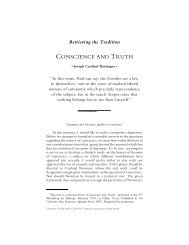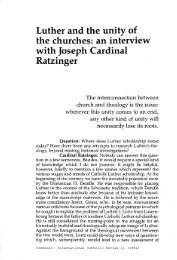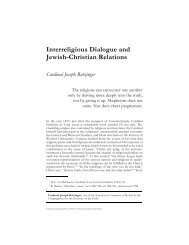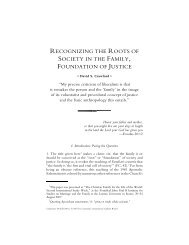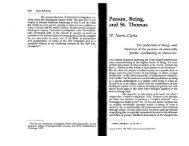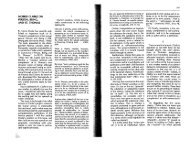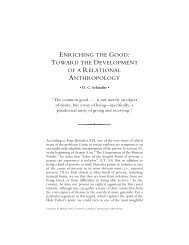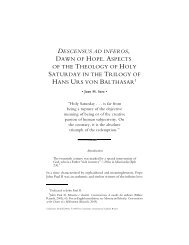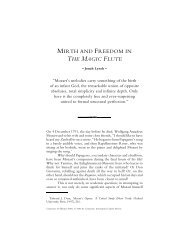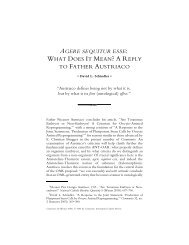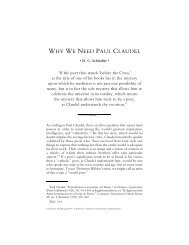Juan Sara. Secular Institutes According to Hans Urs ... - Communio
Juan Sara. Secular Institutes According to Hans Urs ... - Communio
Juan Sara. Secular Institutes According to Hans Urs ... - Communio
You also want an ePaper? Increase the reach of your titles
YUMPU automatically turns print PDFs into web optimized ePapers that Google loves.
<strong>Secular</strong> <strong>Institutes</strong> 335<br />
which, in increasingly subtle ways, is dominated globally by the<br />
culture of death, by “self interest.” The Apos<strong>to</strong>lic Constitution<br />
Provida Mater will soon be sixty years old, yet the child seems not <strong>to</strong><br />
be growing, <strong>to</strong> have stayed an infant. Indeed, it seems not even <strong>to</strong><br />
have learned <strong>to</strong> walk. What, then, is this child? The “synthetic child”<br />
of Novalis or one who, in the midst of such purity and richness, of<br />
the mystery of the whole in the fragment and the circumincession of<br />
the transcendentals, has lost its wits and is no longer normal? Does a<br />
form of life, a mission, that by its very constitution is so rich and so<br />
demanding provide each institute and each of its members sufficient<br />
material for a realistic discernment of spirits? Under what banner<br />
does it, do they, stand?<br />
The words of Jesus <strong>to</strong> his followers after the “No” of the rich<br />
young man are especially pertinent <strong>to</strong> the secular institutes: “‘Who<br />
then can be saved?’ But Jesus looked at them and said <strong>to</strong> them, ‘with<br />
men this is impossible, but with God all things are possible’” (Mt<br />
19:25–26). So, <strong>to</strong>o, is the alternative before which every Christian is<br />
placed:<br />
The whole question of a possible alternative <strong>to</strong> the system is,<br />
therefore, . . . whether it is possible for a Christian <strong>to</strong> ignore or<br />
put aside the challenge of the Ernstfall [decisive moment] <strong>to</strong><br />
follow Christ’s example for the sake of an aggiornamen<strong>to</strong>. In other<br />
words: Is it possible for him <strong>to</strong> make intellectual experiments concerning<br />
his faith unless his capacity for loving is fully engaged in this activity?<br />
For, as we have seen, the object of our faith is none other than<br />
the manifestation on the Cross of God’s inexhaustible love for all<br />
men and for me as an individual. 59<br />
When we abide in this concrete decision of love, everything is<br />
light, hope, and charity (1 Cor 13). The seriousness of the case never<br />
becomes immature and destructive anguish, but a humility that opens<br />
us and moves us more and more <strong>to</strong> serve. In this context, <strong>to</strong> abide<br />
means <strong>to</strong> live in the Mysterium (Eph 1:14). This mystery, the fruitful<br />
union of heaven and earth, is the foundation of all that we have said<br />
here. It is the infinite background that has become illuminated in the<br />
five points of light that we have discussed. It is a Mystery of a joy<br />
offered and received in grateful response:<br />
59 <strong>Hans</strong> <strong>Urs</strong> von Balthasar, The Moment of Christian Witness (San Francisco:<br />
Ignatius Press, 1994), 75–76.



